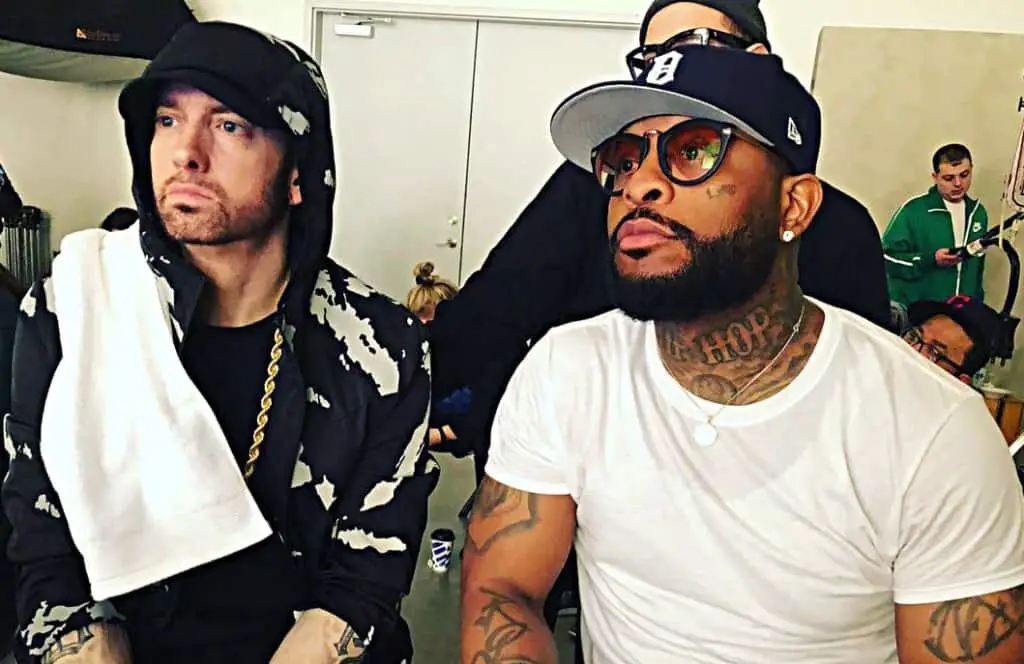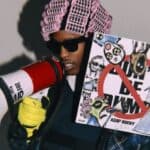Royce Da 5’9″ talks about Eminem in a new interview.
Royce Da 5’9″ is releasing his new album ‘The Allegory‘ next week on February 21st, and for the promo run, he did a new interview with LEVEL where he talks about his longtime friend Eminem, Kaepernick, his new project and much more. Check out some of the conversations below.
LEVEL: On one Allegory track, “Perspective,” Eminem runs down an abridged history of racism in America and speaks about hip-hop unifying people. Does that interlude reflect conversations you’ve had with Em about race?
Royce 5’9″: How it came about was we were on the phone, talking about him growing up. A lot of people think he’s from the trailer park. He’s from Detroit, he grew up in the hood around Black people. We talk all the time about how tough it was, him being White and into hip-hop, and Black people thinking he’s trying to act Black. They used to beat him up all the time, just jump him. He couldn’t understand why. It wasn’t until he met Proof and Proof took a liking to him [and] started vouching for him that he got accepted at the Hip-Hop Shop. It goes both ways. I talked to him about a lot of things that I went through in Oak Park, the racist shit that happened to me that started when I was young and didn’t understand. We both came to a very clear understanding. I feel like God put him in my life to teach me that it’s not cool to generalize. Because if it wasn’t for Marshall Mathers, I don’t think I would like Whites, and on the flip side, if it wasn’t for Proof, I don’t think he would’ve liked Black people. He assumed Black people didn’t like him, because they used to beat him up. God places people in your life for a particular reason. Marshall restored my faith in people. It’s not really about converting people; it’s just about gaining understanding.
LEVEL: What do you remember about the conversation that inspired “Perspective”?
Royce 5’9″: He said so many beautiful things, man. He does this all the time. We’ll be talking, and he’ll drop so much knowledge. This particular time, I was like, “If I send you a beat, can you talk on it and express some of these things?” The phone conversation version was way better. When I sent the beat, he talked for 12 minutes. We edited it down. A lot of the album excerpts and shit like that are there for you to know that somebody has that perspective. It’s not necessarily my perspective.
LEVEL: It sounds like you largely agree with his perspective, though.
Royce 5’9″: I think the main point he was making is that hip-hop brings people together, and I 100% agree. I just don’t think we utilize it as much as we can. I don’t think it’s this big kumbaya party in hip-hop, where everybody’s there. Hip-hop can be that bridge. You got great men like Farrakhan, real leaders. They’re trying to touch the hip-hop artists’ platforms, to get them to understand that we’re the new leaders, the people that kids are gonna listen to.
Eminem doesn’t appear on Royce Da 5’9″s new album, but he does appear as a guest on The Allegory’s sobering “Perspective” skit, where he weighs in on hip-impact hop’s on our culture.
Over the glum instrumental, Slim Shady speaks about how hip-hop has created a “melting pot” that draws people together. “But you’ve got people of all races, like, coming together and helping shape this from the? ground? up,” he begins. “So now you? got little white kids growin’ up? with black idols. And you got black kids growin’ up with white idols. And you got — it’s just this whole mixing pot. Nothing has brought more races and more people from all different walks of life together than hip-hop.”
Em then looks at things from the perspective of a black youngster growing up without representation in mainstream music during the heyday of rock and roll in the 1960s and 1970s. Sister Rosetta Tharpe and Chuck Berry, both Rock & Roll Hall of Famers, were major influences on the genre, according to the Detroit native.
“If I’m a Black kid, growing up in say the ’60s, ’70s, ’80s, whatever, right? And I’m looking on TV and nobody looks like me and it’s very stereotypical and I’m looking at toys and everything is white, the f—ing action figures are all white. The f—ing superheroes are all white,” Em says. “Like maybe there’s one or two black superheroes mixed in there with mostly white. I don’t how I’d grow up and not have a chip on my shoulder.”
Check out the full interview here on LEVEL.








